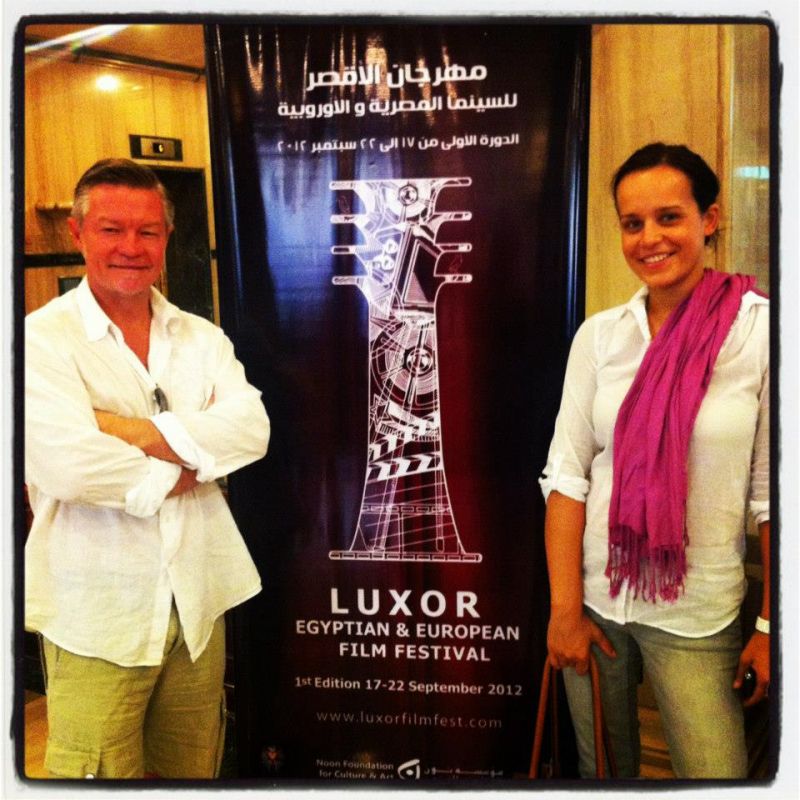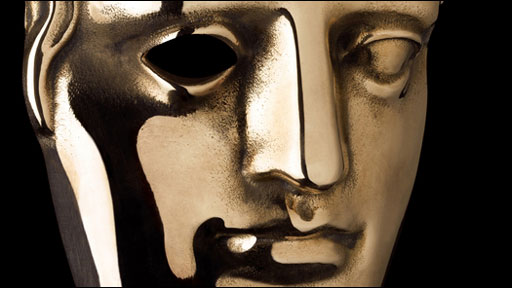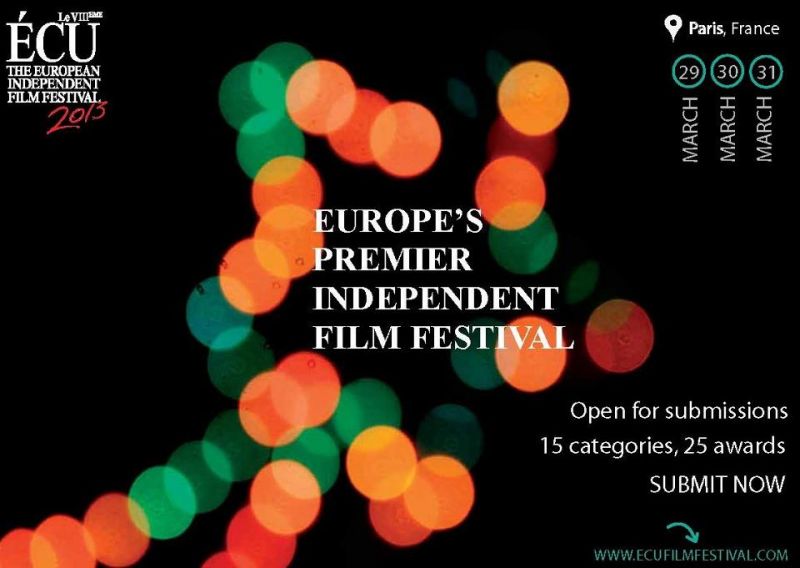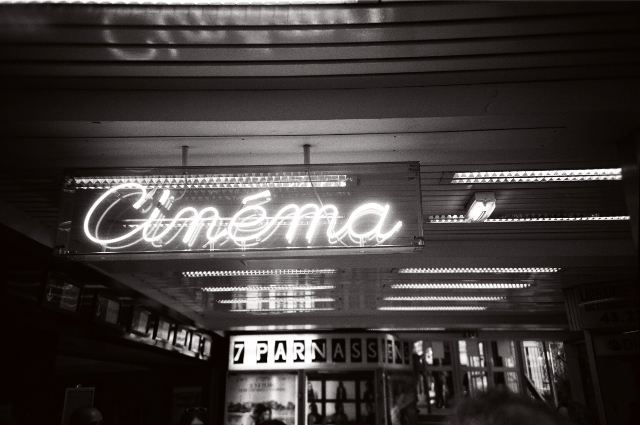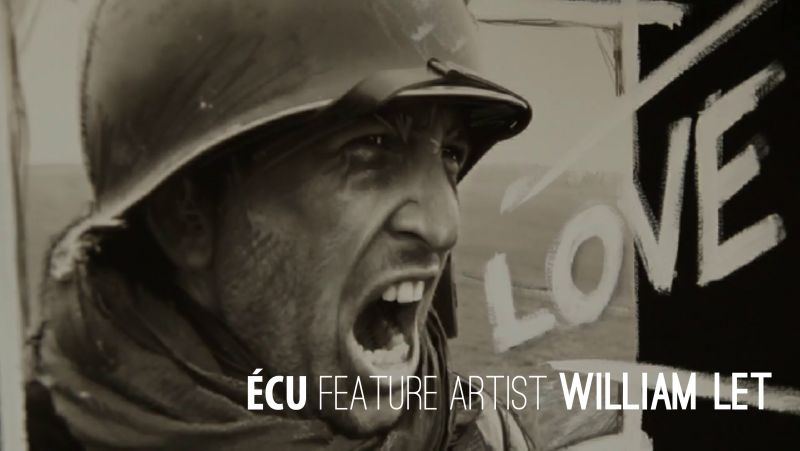|
|
||
|
Pro Tools
FILMFESTIVALS | 24/7 world wide coverageWelcome ! Enjoy the best of both worlds: Film & Festival News, exploring the best of the film festivals community. Launched in 1995, relentlessly connecting films to festivals, documenting and promoting festivals worldwide. Working on an upgrade soon. For collaboration, editorial contributions, or publicity, please send us an email here. User login |
Azhar Mahmood Interview
Azhar Mahmoud is a Pakistani filmmaker who won the prize for “Best Non-European Documentary” on ÉCU’s 2010 edition with his film “Dhobi Ghaat”. On this interview, he tells us a little bit about his discovering of an innate talent for filmmaking, and more. Where are you from? I am from Lahore, Pakistan. FYI, Lahore is called the heart city of Pakistan and is situated near the border of Pakistan and India. It is one of the most historical cities of Pakistan. If you could describe indie cinema in your country in 3 words, what would they be? Sin, collapsed, ignored What got you started in filmmaking? I was working in a knitwear industry as a merchandiser for 8 the best years of my life. Due to disastrous, global war on terror against “PEACE”, the industry collapsed in Lahore and almost all the factories got closed. I was jobless for about 3 years. During that period I spent my life over the roads, most of the time. I observed people around me, I saw the ignored ones as well as the portrayed ones in my society. And I was writing, among the crowd on a tea stall. I was presenting the only show for the kids on a local radio station. I was passing through a lot of spiritual experiences in my personal life and was listening to music over shrines. Meanwhile, a local magazine started publishing my short stories. And I met a filmmaker, who was financially out of shape, while making one documentary per year. During all this period, I meditated a lot. And finally related to my instincts about Art, which I held since my childhood. So I took another tough decision of my life and changed my profession from merchandising to filmmaking. Ever since, I believe that I see through the life around me. I found filmmaking the best way to show to others my own style of perceiving, imagining, and presenting ideas in an artistic way. Which is effective enough in making others think positively rather than negatively. Who or what are you influenced by? I don’t want to remember the BIG NAMES. There are many around the globe. And in my own country, there are many ICONS, who are influencing others. Up to now, I haven’t met any one who is sincerely promoting film making in Pakistan, because most of them are fighting to survive. In any case, I can say that the “person” who gave me chance to learn film making, who “didn’t discourage” me to go for it, is the person I am influenced by. He’s a director, and his name is “Imran Babur”. How did you learn about ÉCU? On the Internet. I think it was on Facebook. Since I couldn’t pay the fee, I requested the team to please waive it off and kindly help me getting a sponsor for my ticket and stay. They couldn’t finance the ticket and stay, but Scott waived off my fee. So I sent my DVD through DHL after getting a loan from a friend, as it would cost me Rs. 2500. What got you interested in submitting for an European film festival? It was the first time I submitted a film to any festival. I had no idea how to go through the process. I found this festival a chance to express my talented inner artist to a worldwide audience. Another, stronger motive was to get my shaken confidence back. Because I worked a lot for the last five years with an artist from whom I learned filmmaking as well, who is a well-known name in documentaries here. I left the office a month before I submitted my documentary to ÉCU, just because I thought I could never grow there and I should jump out of that sphere to make it in my own way. Later, as I submitted my documentary to ÉCU and won the award, I got my confidence back – my teacher appreciated me when I informed him, and I thanked him. It was the same documentary I had requested him at three different times to at least watch it. He hardly watched it once for a minute and left… Describe your ÉCU experience. I found the team, and especially Scott, very kind people. Being the founder of the festival, I wasn’t expecting him to respond to me so kindly. I am really thankful to him for giving me this opportunity. I’ve stayed in touch with him to tell him about my slow evolution, and also get his advice whenever I need. Unfortunately I couldn’t attend the festival itself due to lack of finances, but I did get my prize – a 500 GB hard-drive – which I am currently using. Was your film featured elsewhere after ÉCU? I have sumbitted it to Berlinale film festival recently. I hope they’ll select me to attend the festival. What was the most valuable aspect taken from participating in the film festival circuit? Getting my confidence back and I seeing a ray of light given by Nature to me, as I was in a dark horrible labyrinth! What was the greatest barrier you came up against in your filmmaking experience? My struggle to impress my “teacher”. What are you working on now? I have recently finished shooting a documentary on the subject of “Karez system and issue of drought in Balauchistan”. The next big project I am working on is “Cultural dances of Pakistan”. I am looking for someone to finance the idea, as it’ll be a big budget documentary. Your plans for the future? I want to show my work internationally to polish my talent and vision. I also need to work on some good team projects, so I’m open to any opportunity I get. I want to do something unique and effective. My long term plan is to establish my own business producing documentaries, plays and films. Please feel free to add any information that you may want me to include in the interview, such as your contact or website! Also feel free to attach any picture that you’d like to accompany it. I think photography is a cute tool to express myself, and I love doing it. As a result I have taken almost 20000 photographs during last few months. Anyone can check them out by searching my email address on Facebook: enigmainside@gmail.com /// Azhar Mahmoud est un réalisateur pakistanais, vainqueur du prix du Meilleur Documentaire Non-Européen 2010, avec son film “Dhobi Ghaat”. Dans cette interview, il nous raconte entre autres comment il a découvert son don pour la réalisation. D’où venez-vous? Je viens de Lahore, ville située à la frontière du Pakistan et de l’Inde, et considérée comme le coeur du Pakistan. C’est l’une des villes les plus historiques du pays. Si vous deviez décrire le cinéma indépendant dans votre pays en 3 mots ? Corrompu, brisé, ignoré Qu’est-ce qui vous a poussé à vous tourner vers la réalisation ? Pendant les 8 plus belles années de ma vie, j’ai travaillé comme marchand de laine. La guerre désastreuse menée contre le terrorisme au nom de la « PAIX » a fait s’effondrer l’industrie à Lahore, causant la fermeture de presque toutes les usines. J’ai été au chômage pendant 3 ans. Pendant cette période, j’ai passé une bonne partie de mon temps à parcourir les routes. J’ai observé les gens autour de moi, j’ai vu ceux que ma société ignore mais aussi ceux dont elle parle. Et j’écrivais au milieu de la foule dans un stand de thé. J’ai présenté la seule émission radio pour enfants sur une station radio locale. J’ai vécu beaucoup d’expériences spirituelles dans ma vie personnelle et j’écoutais de la musique sacrée. Pendant ce temps, un magazine local a commencé à publier mes nouvelles. J’ai rencontré un réalisateur, qui ne s’en sortait pas financièrement en faisant un documentaire par an. À force de méditer, j’ai fini par renouer avec les instincts artistiques qui m’habitaient depuis l’enfance. J’ai alors pris une autre décision importante dans ma vie en changeant de métier, pour passer de vendeur à réalisateur. Depuis, j’ai l’impression de voir plus clair dans la réalité qui m’entoure. J’ai trouvé que la réalisation était le meilleur moyen de montrer aux autres ma propre manière de percevoir, d’imaginer, tout en présentant mes idées de manière artistique. C’est un bon moyen d’encourager une pensée optimiste plutôt que négative. À qui ou à quoi devez-vous votre inspiration ? Je ne veux pas me souvenir des GRANDS NOMS, il y en a dans le monde entier. Mon propre pays est plein d’ICÔNES, qui influencent les autres. Jusqu’à présent, je n’ai rencontré personne qui soutienne sincèrement le cinéma au Pakistan, car la plupart des cinéastes luttent pour leur propre survie. En tout cas, je peux dire que celui qui m’a influencé est celui qui m’a donné la chance d’apprendre à faire des films et ne m’a jamais découragé,. C’est un réalisateur du nom de Imran Babur. Comment avez-vous pris connaissance d’ÉCU ? Sur internet. Par facebook, je crois. Comme je n’avais pas les moyens de payer mon inscription, j’ai demandé à l’équipe du festival de bien vouloir m’en faire grâce et m’aider à trouver un sponsor pour financer le billet et le séjour. Ils n’ont pas pu trouver de quoi payer le billet et le séjour, mais Scott m’a exonéré de frais d’inscription. Alors j’ai envoyé mon DVD par DHL pour 2500 Roupies, que j’ai pu payer grâce au prêt d’un ami. Qu’est-ce qui vous a donné envie de proposer votre film ? C’était la première fois que j’envoyais mon film à un festival. Je ne savais pas du tout comment m’y prendre. Ce festival m’a donné la chance d’exprimer mon talent artiste face à un public international. Ce qui m’a encore plus donné envie de participer, c’est l’envie de retrouver l’assurance que j’avais perdue. Ces cinq dernières années, j’ai beaucoup travaillé avec un artiste qui m’a lui aussi appris à faire des films, quelqu’un d’assez connu dans le monde du documentaire chez nous. Je suis parti un mois avant d’envoyer mon documentaire à ÉCU, pensant que je ne pourrais pas m’épanouir là-bas et que je ferais mieux de sortir de cette petite sphère pour faire les choses à ma façon. Plus tard, lorsque ÉCU m’a attribué ce prix, j’ai repris confiance en moi. Mon professeur a apprécié que je l’en informe et je l’ai remercié. C’était le même documentaire qu’à trois reprises je lui avais demandé de regarder. Il l’a à peine regardé une fois pendant une minute, et il est parti… Pourriez-vous décrire votre expérience à ÉCU ? J’ai trouvé que l’équipe était vraiment adorable, surtout Scott, le fondateur du festival. Vu sa position, je ne m’attendais pas à ce qu’il me traite avec autant de gentillesse. Je lui suis très reconnaissant de m’avoir donné cette opportunité. Je suis resté en contact avec lui pour lui raconter ma lente évolution et lui demander des conseils quand j’en ai besoin. Malheureusement, je n’ai pas pu assister au festival lui-même par manque de moyens, mais j’ai gagné un prix, un disque-dur de 500Gb, que j’utilise actuellement. Votre film a-t-il été présenté dans d’autres festivals après ÉCU ? J’ai récemment envoyé mon film au festival Berlinale, en espérant être sélectionné et pouvoir y assister. Que vous a principalement apporté votre participation au festival ? J’ai regagné confiance en moi et la nature m’a envoyé un rayon de lumière alors que j’errais dans un affreux labyrinthe obscur ! Quel est le principal obstacle que vous ayez rencontré au cours de votre expérience dans le cinéma ? Mon combat pour impressionner mon « maître ». Sur quoi travaillez-vous en ce moment ? Je viens de terminer le tournage d’un documentaire sur “Les systèmes d’irrigation Karez et le problème de la sècheresse au Balauchistan”. Le prochain gros projet auquel je travaille est « Les dances traditionnelles du Pakistan ». Je recherche quelqu’un pour financer cette idée, car ce sera un documentaire à gros budget. Vos projets pour l’avenir ? Je veux que mon oeuvre soit diffusée dans le monde entier, et je souhaite améliorer mon talent et ma vision des choses. J’ai aussi besoin de travailler sur de bons projets d’équipe, je suis ouvert à toutes les opportunités qui s’offrent à moi. Je veux faire quelque chose d’unique et d’efficace. Mon but à long-terme est de créer ma propre société de production pour des documentaires, des films et des pièces de théâtre. Si vous voulez ajouter une information, comme vos coordonnées, votre site internet ou une photo pour accompagner l’interview, n’hésitez pas ! La photographie est pour moi un bon outil d’expression, et j’adore en faire. J’ai pris près de 20000 photos ces derniers mois. Elles sont accessibles à tous en cherchant mon adresse email sur Facebook : enigmainside@gmail.com
10.12.2010 | ÉCU-The European Independent Film Festival's blog Cat. : Azhar Mahmood Azhar Mahmoud Dhobi Ghaat ecu 2011 ÉCU Alumni enigmainside@gmail.com European Independent Film Festival Facebook Imran Babur Inde India Lahore Pakistan Scott PEOPLE
|
LinksThe Bulletin Board > The Bulletin Board Blog Following News Interview with EFM (Berlin) Director
Interview with IFTA Chairman (AFM)
Interview with Cannes Marche du Film Director
Filmfestivals.com dailies live coverage from > Live from India
Useful links for the indies: > Big files transfer
+ SUBSCRIBE to the weekly Newsletter Deals+ Special offers and discounts from filmfestivals.com Selected fun offers
> Bonus Casino
User imagesAbout ÉCU-The European Independent Film Festival Hillier Scott Hillier Scott (ECU)
Scott Hillier, Founder and President of ÉCU - The European Independent Film Festival
Scott Hillier is a director, cinematographer, and screenwriter, based in Paris, France. In the last 20 years, Hillier has gained international recognition from his strong and incredible cinematography, editing, writing, producing and directing portfolio in both the television and film industries.
Scott began his career in the television industry in Australia. In 1988, he moved to London getting a job with the BBC who then set him to Baghdad. This opportunity led him to 10 years of traveling around world for the BBC, mainly in war zones like Somalia, Bosnia, Tchetcheynia, Kashmir, and Lebanon. After a near fatal encounter with a Russian bomber in Tchechnyia, Hillier gave up his war coverage and began in a new direction.
He moved to New York City in 1998. He directed and photographed eight one-hour documentaries for National Geographic and The Discovery Channel. Based on his war knowledge and experience, Hillier wrote and directed a short film titled, “Behind the Eyes of War!" The film was awarded “Best Short Dramatic Film” at the New York Independent Film and TV Festival in 1999. From that he served as Supervising Producer and Director for the critically acclaimed CBS 42 part reality series, "The Bravest” in 2002 and wrote and directed a stage play called, "Deadman’s Mai l," which ran at Le Théâtre du Moulin de la Galette in Paris during the summer of 2004. He then became the Director of Photography on a documentary titled, “Twin Towers." This was yet another life changing experience for Hillier. The riveting documentary won an Academy Award for "Best Documentary Short Subject" in 2003. In 2004, Hillier changed continents again, spending three months in Ethiopia. He produced “Worlds Apart,” a pilot for ABC America / True Entertainment / Endemol. As you can see, Hillier was and is always in constant movement and enjoys working in a number of diverse creative areas including documentaries, music videos, commercials, feature and short films.
Scott studied film at New York University and The London Film and Television School. He also studied literary non-fiction writing at Columbia University. Hillier's regular clients include the BBC, Microsoft, ABC, PBS and National Geographic. Between filming assignments, he used to teach film, a Masters Degree course in Screenwriting at the Eicar International Film School in Paris, France and journalism at the Formation des Journalistes Français in Paris, France.
View my profile Send me a message The EditorUser contributionsUser links |




















